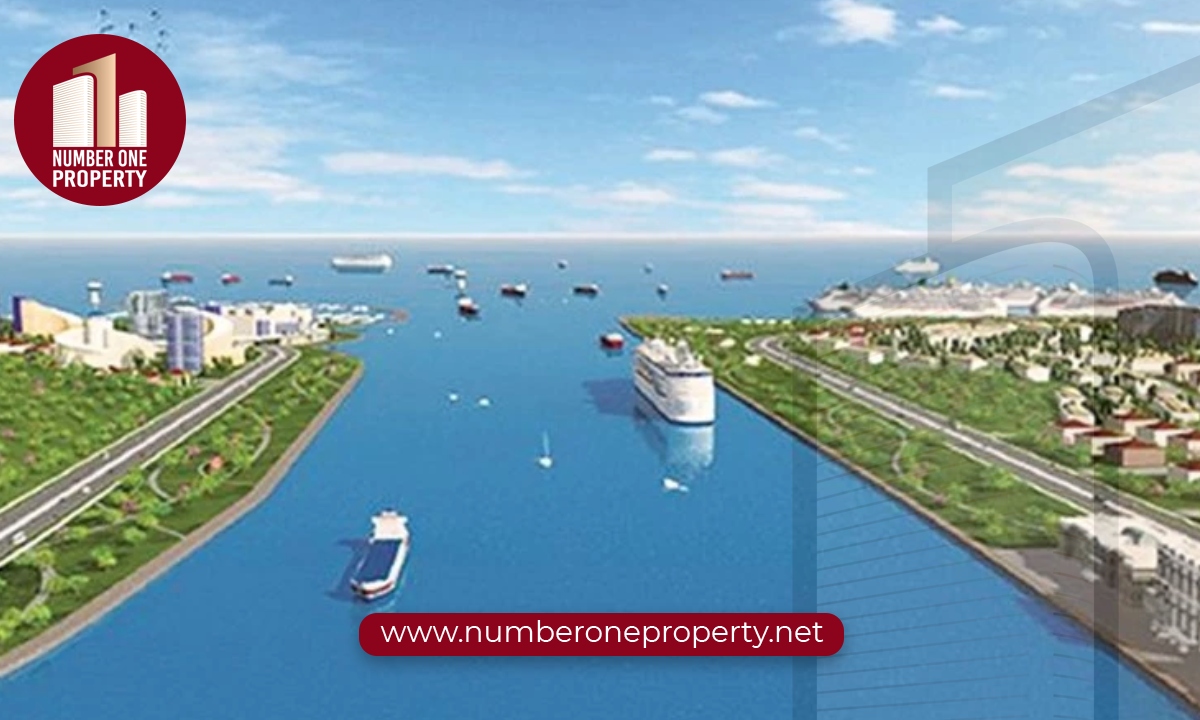This crazy project is a game-changer for Turkey's maritime infrastructure, Real Estate and Land Investment.
The announcement of the Canal Istanbul project by Turkish President Recep Tayyip Erdogan has sparked significant interest in the real estate sector. This ambitious initiative aims to construct an artificial waterway parallel to the Bosphorus Strait, connecting the Black Sea and the Sea of Marmara.
This development is not just a feat of engineering; it's a pivotal moment for land investment and real estate in Istanbul.
Unveiling the New Istanbul Canal and its Significance
Istanbul, where rich history and modernity blend seamlessly, has always been a maritime trade and transportation hub. With its strategic location connecting Europe and Asia, the Bosphorus Strait has been vital in facilitating global commerce for centuries.
However, the need for an alternative waterway has become more pressing due to increasing congestion and safety concerns.
Enter the ambitious canal project to create a new waterway parallel to the Bosphorus Strait. This project will revolutionize Istanbul's maritime infrastructure by providing a modern and efficient shipping traffic solution.
The new canal (artificial canal) will alleviate congestion and enhance safety measures, ensuring smoother navigation for vessels of all sizes.
The benefits of this canal project are manifold. Firstly, it will significantly reduce the risk of accidents and collisions in the Bosphorus Strait, notorious for its narrow passages and heavy traffic.
By diverting some of the maritime traffic to the new waterway, ship operators and environmentalists who have long expressed concerns about potential oil spills or other ecological disasters will feel more at ease.
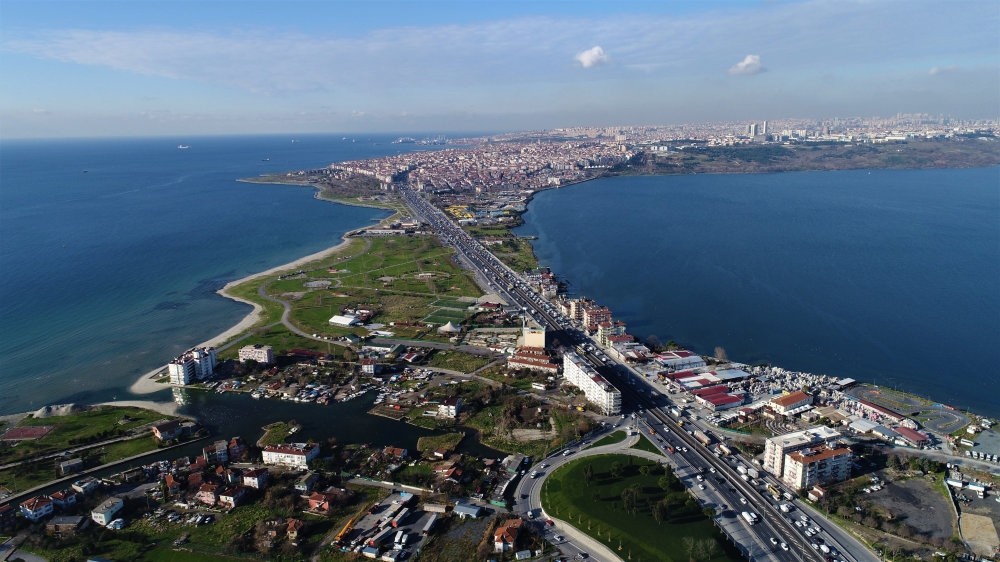
Moreover, this development will have positive economic implications for Istanbul and Turkey. The new canal will be an attractive destination for international trade routes, further boosting Istanbul's status as a global logistics center. It will also create employment opportunities during the construction phase and subsequent operations.
Critics argue that such an ambitious project may have environmental consequences or disrupt local communities along its route.
However, meticulous planning and sustainable practices can address these concerns effectively. Ecological impact assessments can guide decision-making processes while considering both short-term challenges and long-term benefits.
Transforming Istanbul's Landscape
The Istanbul Canal project represents a monumental shift in urban dynamics. Spanning over 45 kilometers, this new canal will relieve pressure on the heavily trafficked Bosphorus Strait, ushering in a new era of maritime traffic management.
The strategic location of the canal project, bridging two seas, positions Istanbul as a pivotal maritime hub, akin to the Suez Canal's global significance.
The Need for a New Waterway for Addressing Traffic Congestion
The Bosphorus, a vital waterway connecting the Black Sea to the Mediterranean through the Marmara Sea, is facing a pressing issue: traffic congestion. As maritime trade continues to grow, the increasing number of vessels passing through this narrow strait has led to significant delays and safety concerns.
However, addressing this problem goes beyond just mitigating traffic congestion; it also involves considering the environmental impact and preserving the delicate marine ecosystem.
The need for a new waterway becomes evident when we examine the detrimental effects of Bosphorus traffic congestion. Delays in shipping hinder economic growth and pose risks to maritime safety.
With ships navigating through crowded waters, accidents become more likely, potentially leading to oil spills or other environmental disasters.
Moreover, prolonged waiting times increase fuel consumption and emissions, exacerbating air pollution and climate change.
We can alleviate these concerns by establishing an alternative route or expanding existing ones while protecting the marine ecosystem. A new waterway would relieve traffic congestion by diverting some vessel traffic from the Bosphorus.
This would reduce delays and enhance shipping safety as vessels can navigate more freely in less crowded waters.
Furthermore, such a solution presents an opportunity to implement environmentally friendly measures prioritizing sustainability and ecosystem preservation.
By incorporating advanced technologies like ship-to-ship transfer facilities or utilizing electric-powered vessels, we can significantly reduce carbon emissions and minimize negative impacts on marine life.
Real Estate Opportunities
The Canal Istanbul project is expected to create a ripple effect in the real estate market. Areas adjacent to the planned route are already seeing an uptick in interest from investors and developers.
This artificial waterway, coupled with new bridges and infrastructure, is poised to enhance the value of nearby properties. It's an opportune moment for investors to capitalize on the potential growth in these zones.
Land Investment Potential
The Turkish government's announcement of the canal has put a spotlight on land investment. The construction of new airports and artificial islands and the city's expansion towards the new canal indicate a promising future for land values.
Savvy investors are eyeing these developments, recognizing the long-term benefits of investing in land around this new route.
The importance of buying land next to the new Istanbul Canal
Investing in land next to the new Istanbul Canal is important for prospective buyers. The construction of the Istanbul
Canal marks a major infrastructural development, positioning the area as a prime location for real estate investment.
The canal, designed to alleviate shipping traffic in the Bosporus, is expected to boost property values in its proximity. Buying land in this strategic location not only offers the potential for substantial returns on investment but also provides a unique opportunity to be part of a transformative urban project.
As the canal enhances connectivity and accessibility, the surrounding land is poised to become a hub for commercial, residential, and recreational developments, making it a wise choice for those seeking long-term growth and value appreciation in Istanbul's dynamic real estate market.
An Engineering Marvel: Understanding the Design and Construction of the Istanbul Canal
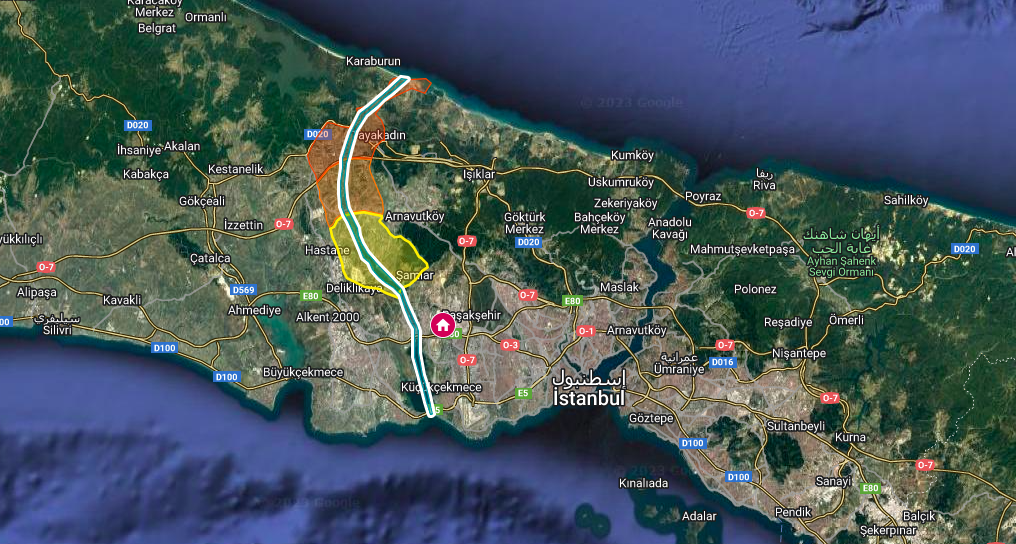
The Istanbul Canal is a civil engineering project and an engineering marvel that showcases human ingenuity and innovation.
Understanding this remarkable canal's design and construction process provides insights into the meticulous planning and execution required for such ambitious projects.
The construction of the Istanbul Canal involves complex steps and cutting-edge techniques. One crucial aspect is the dredging process, which removes sediment, rocks, and debris from the waterbed to create a navigable channel.
Advanced dredging techniques are employed to ensure efficient excavation while minimizing environmental impact.
The Istanbul Canal incorporates a sophisticated lock system that allows ships to navigate through changes in water levels. These locks act as water chambers, enabling vessels to move smoothly between different elevations along the canal route.
The design and construction of these locks require precise engineering calculations and meticulous attention to detail.
Overall, delving into the intricacies of the design and construction of the Istanbul Canal unveils the remarkable feats achieved by civil engineers.
It highlights their ability to overcome challenges, implement innovative solutions, and create enduring structures that shape our world.
Economic Implications: Boosting Trade and Transforming Istanbul into a Global Maritime Hub
Trade facilitation is crucial in transforming Istanbul into a global maritime hub. By streamlining processes, reducing bureaucratic barriers, and improving logistics infrastructure, Istanbul can attract more businesses and investors worldwide.
This will increase the city's trade volumes, job creation, and economic prosperity.
Istanbul offers numerous investment opportunities for both local and foreign investors. The city's strategic location between Europe and Asia makes it an ideal gateway for trade between these two continents.
With its well-developed ports, shipping lanes, and logistics networks, Istanbul provides a solid foundation for businesses looking to expand their regional operations
The economic growth potential of Istanbul as a global maritime hub must be considered. As more companies choose Istanbul as their base of operations or transit point for goods, the city will experience an influx of capital investments that will stimulate various sectors of the economy.
This includes transportation services, warehousing facilities, manufacturing industries, expansion of tourism, real estate market growth, etc.
Transforming Istanbul into a global maritime hub has significant economic implications. Istanbul can attract investments and boost international trade by enhancing trade facilitation measures and leveraging its strategic location as a bridge between continents.
This transformation will benefit the local economy and create new opportunities for businesses worldwide seeking to tap into Istanbul's vast potential.
Social and Cultural Impact: Redefining Urban Development and Tourism in Istanbul
Canal Istanbul is not just an infrastructural project; it's a transformative force for Istanbul's social and cultural landscape.
While it promises significant benefits in urban development and tourism, it's essential to balance these with sustainable practices to preserve Istanbul's unique heritage and environment.
As the canal takes shape, it will undoubtedly redefine what Istanbul represents to its residents and the world.
The Canal Istanbul project, a visionary endeavor by the Turkish government, is set to reshape Istanbul's social and cultural landscape.
Urban Development: A New Pulse in the City
Canal Istanbul is poised to become a new epicenter for urban development. Surrounding areas are expected to surge in modern housing, commercial complexes, and public spaces.
This growth promises to increase jobs, enhance living standards, and potentially balance the city's population distribution. The canal will be a backbone for new neighborhoods, fostering communities that blend traditional Istanbul charm with contemporary living.
Cultural Renaissance: Reviving Istanbul’s Heritage
The project is more than a feat of engineering; it's a gateway to cultural revival. By easing maritime traffic on the Bosphorus Strait, the canal will restore tranquility to historic areas, making them more accessible and enjoyable for locals and tourists.
Reducing traffic and pollution is expected to rejuvenate the strait’s historical significance, offering fresh air to Istanbul’s cultural sites.
Boosting Tourism: A New Attraction on the Global Map
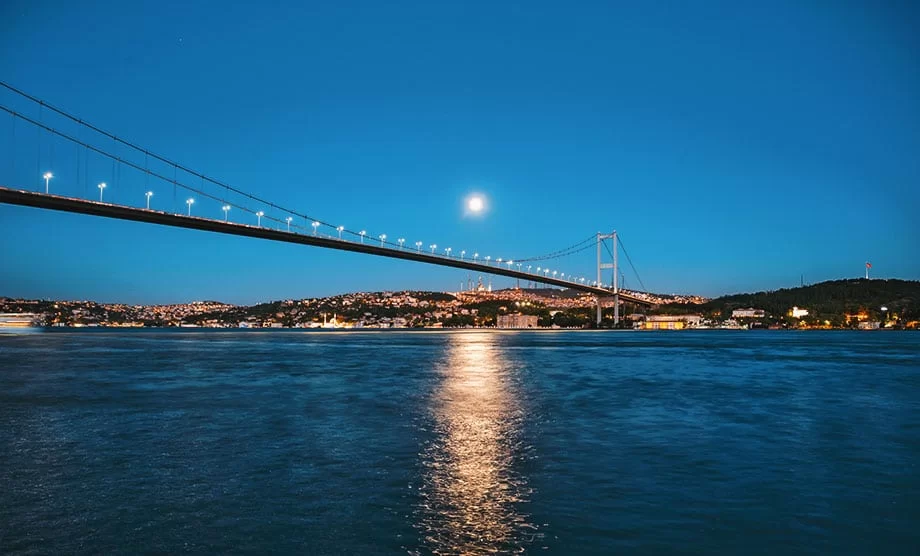
Canal Istanbul is anticipated to become a significant tourist attraction, drawing visitors keen to witness this modern marvel.
The canal will offer new sightseeing experiences, boat tours, and waterfront attractions, enriching Istanbul's tourism portfolio.
This increase in tourism will stimulate the local economy, bringing new opportunities for small businesses and artisans and showcasing Istanbul's unique blend of history and modernity to a broader audience.
Social Dynamics: Bridging Communities
As new areas develop around the canal Istanbul, there's potential for enhanced social interaction and community-building. The project could bridge diverse neighborhoods, creating a more integrated cityscape.
Public spaces along the Canal Istanbul are envisioned as social hubs, fostering interactions among Istanbul's cosmopolitan populace.
Environmental and Economic Implications
The canal project, while lucrative, also poses environmental challenges. Research studies are delving into the ocean dynamics and potential pollution caused by increased ship traffic.
The Turkish government is addressing these concerns, ensuring that the canal boosts the economy and maintains safer transit conditions.
Conclusion: Embracing the Future with the New Istanbul Canal as a Symbol of Progress
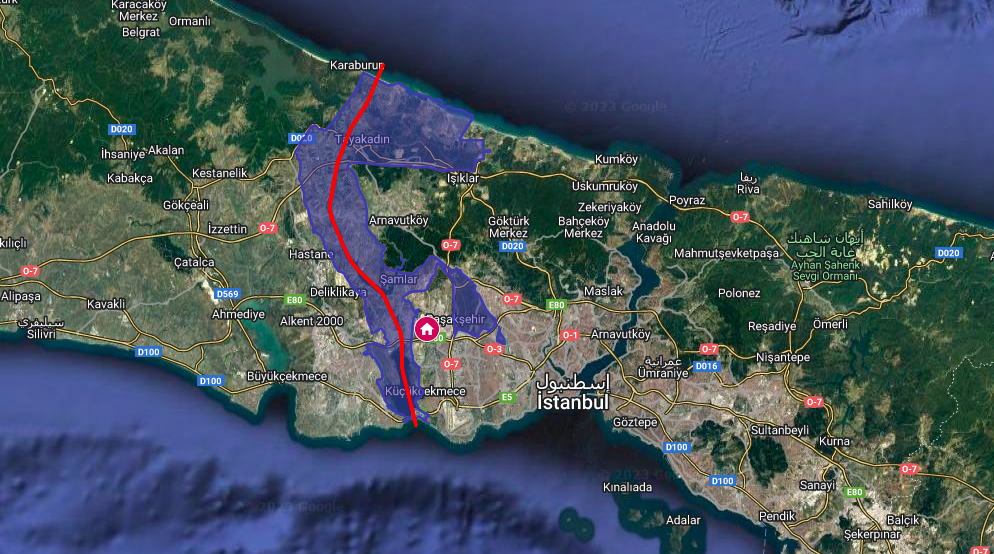
As the Istanbul Canal project progresses, it's clear that its impact on real estate and land investment is profound. It's a transformative period for Istanbul, with the new canal set to redefine the city's real estate landscape.
For investors and stakeholders, staying abreast of the canal project's developments is crucial in making informed decisions in this dynamic market.
Related Articles:
Benefits of Land Investment in Turkey
Land Investments in Arnavutkoy: Istanbul's New Frontier


